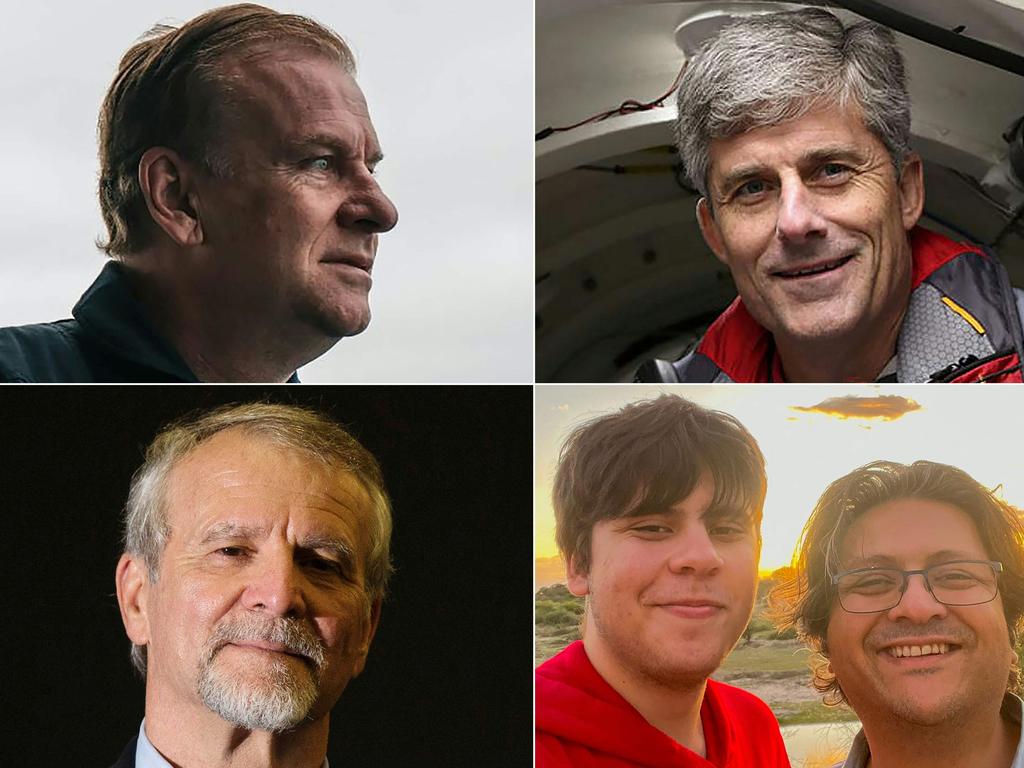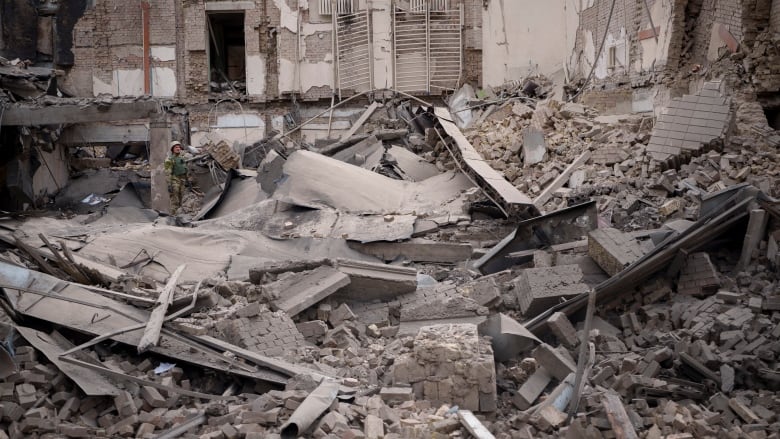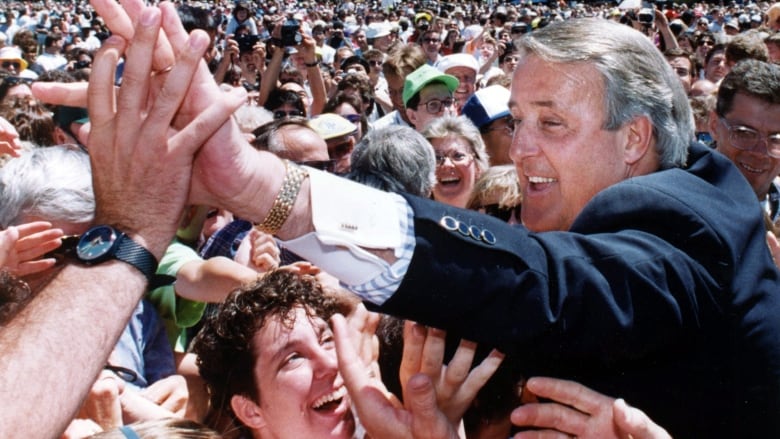This article is more than
6 year oldCanadian medical school grads unable to get a residency may get a spot under new program funded by military

Baillie Redfern is selling her belongings and packing up her Vancouver apartment to return home to Ontario because she is one of about 115 Canadian medical school graduates who didn't get a residency placement this year.
But now the 29-year-old hopes the Canadian military will be able to save her year with a new program that will create additional family medicine residency spots across the country.
"Gosh, I hope I have a residency! Nothing is worse than being a trained physician and not being able to practise medicine," Redfern says.
The Medical Officer Training Program Surge 2018 is meant to solve two problems: help Canada's Armed Forces recruit about 60 doctors and give unmatched medical students a chance to get into family medicine programs this summer.
"Right now we're undermanned so we don't have enough physicians to do the jobs that we need to across Canada and across the world," says Maj. Mike Strawson, a flight surgeon, medical officer and the person responsible for directing the careers of physicians in the Armed Forces.
- 'You feel like your world is over': Problems and solutions for medical graduates without residencies
He's been visiting medical schools across the country, looking for programs with space to accept a few more residents.
"This is something that helps us by taking a look at some fantastic folks, having them come in to join my team to help take care of my patients … our men and women in Canada abroad, on the ocean on ships, undersea and up in the air," he says.

About 115 Canadian medical school graduates didn't get into provincially-sponsored residency positions in one of the country's 17 university-run medical programs. They need to finish two to five years of compulsory, hands-on training before they can practise as doctors.
So, the military is more than doubling the number of family residency spots it funds — from 18 to 32 — at Queen's University in Kingston, Ont., and universities of Ottawa, Alberta, Calgary, Toronto and Manitoba. The exact number of new spots is still being negotiated at each of the schools, based on how many more residents they can handle starting in July. The military hasn't provided an overall budget for the initiative.
'Win-win-win'
"We've had a longstanding relationship with the Canadian military and to see them provide additional spots for training where we have the capacity to train is wonderful for both of us," says Dr. Bruce Martin, the post-graduate director for the Department of Family Medicine Residency program at the University of Manitoba.
"It truly is a win-win-win for all individuals, not just for the unmatched students."
The University of Manitoba will get one or two of the new positions — and they could be located in Winnipeg or a rural community.
More than 30 medical students have applied for the spots.
- 'You feel like your world is over': Problems and solutions for medical graduates without residencies
- Lack of residency spots for some graduating MDs costs taxpayers
"We've also had interest expressed from even a wider cohort outside of the Canadian medical graduates that are unmatched. And so I see … this pilot to be something that is also creating relationships that are going to be leveraged so that we can create even more capacity for next year for a wider audience," Strawson says.
Medical schools are interviewing applicants at universities this week. The University of Manitoba's Martin says the selection process will be as vigorous as for any other residency position.
"Perhaps a little bit of additional in that the military experience and the opportunities they will have there are unique to us over the last year or two. So it's working closely with DND to make sure that we've got a good fit for [the] community, for the resident, for a training program and for the military as well," Martin says.

4-year military commitment
Successful applicants will commit to the military for four years after their training ends. They must be Canadian citizens between the age of 17 and 47. They have to pass a physical fitness test, a medical test and security clearance.
They will be given a signing bonus of at least $150,000. While they are residents, they will earn a salary ranging from $65,000-70,000 — slightly higher than the Canadian average of $61,000. They will receive benefits and all their school-related expenses will be covered.
Military-sponsored residents don't have to perform duties while they are in the residency program. They'll go through basic training and a medical-officer course once they finish.
"They get posted to a base somewhere in Canada. It can be Navy bases in Esquimalt, it can be Navy bases in Halifax, or Air Force bases in Moose Jaw, Saskatchewan," Strawson says.
"They might take care of patients in that location.… They might head over to Iraq. They might head over to Africa. They may head onto a ship in order to take care of folks. Any of those operational missions that the Canadian government asks for us to do, we need physicians there to do it."
After four years, they can leave the military and can work anywhere they want.
"If we have fantastic people that come in and work on my team for four years and at the end of that four years if they don't want to continue the adventure, we're OK with that," Strawson says, adding he would also be happy if they stayed in the military and made that their career.

'Extremely concerned'
The initiative started late last year when the Canadian Federation of Medical Students (CFMS) approached the military to see if there would be opportunities to create additional spots.
"The CFMS is extremely concerned about the increasing number of unmatched Canadian medical graduates, representing a large cohort of competent medical graduates who are unable to complete their training, enter clinical practice and ultimately serve the Canadian population," says CFMS president Henry Annan. He was matched to a pediatrics program at Dalhousie University in Halifax, but knows how stressful it is to be unmatched.
People go unmatched if there's a mismatch between the specific spots available and what graduates want to specialize in. Positions also remain vacant in Quebec because medical residents must be able to speak French fluently.
This year, there were 101 residency positions available for every 100 graduates — the lowest ratio in years. When the language requirements are taken into account, that drops to less than one spot for every student. The CFMS says the ratio should be closer to 120 spots per applicant, to accommodate international medical grads.
"Admitting fewer students to medical schools will not solve the current crisis because that effect will not be realized for 3-4 years when the number of graduates will be fewer. At that time, there will be such large numbers of unmatched Canadian medical graduates that you would have to cut impossibly large numbers of medical school spots," Annan says.
"There is definitely a conversation to be had about the appropriateness of the current number of medical students as part of a larger physician resource planning model."
'You don't plan on being 30 and moving home'
Medical student graduate Redfern is focused on her own next steps. After more than a decade of post-secondary education, she has student debts in the hundreds of thousands of dollars.
"Right now I'm at the stage where I'm packing up and heading home and I don't know what's happening next. I don't know if I'll end up doing military medicine this year or if it will be something in the future," she says.
"You don't plan on being 30 and moving home with your parents!"
Redfern has interviews scheduled at universities this week. She hopes to get good news at one of them.
Karen Pauls is an award-winning journalist who has been a national news reporter in Manitoba since 2004. She has travelled across Canada and around the world to do stories for CBC, including the 2011 Royal Wedding in London. Karen has worked in Washington and was the correspondent in Berlin, Germany, for three months in 2013, covering the selection of Pope Francis in Rome. Twitter @karenpaulscbc
With files from CBC's Laura Lynch
CBC's Journalistic Standards and Practices
Report Typo or Error|Send Feedback
Keywords
<p>They have been blasted from car stereos on the streets of New York City, played by DJs at nightclubs across the US, dubbed into Chinese on TikTok and inspired merengue songs...
Island nation erupts into violence, three dead
Taylor Swift concert photo horrifies internet
Sean 'Diddy' Combs asks judge to reject lawsuit alleging rape of 17-year-old girl in 2003
Ukraine finds itself in a grave situation. Russia appears to be advancing
Ellen to make TV comeback after two years
How the West's plan to punish Russian oil backfired
Will Zionism survive the war?
Putin's Preparing Better Than Us for a Long War
Putin’s choice of new defence minister shows he’s preparing for confrontation with the West




